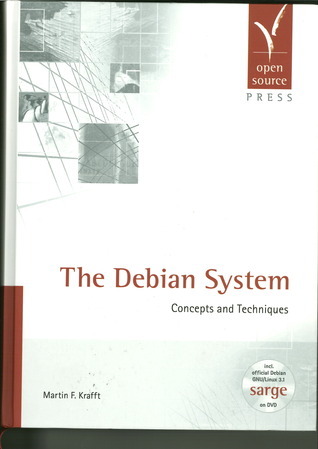What do you think?
Rate this book


The Debian System introduces the concepts and techniques of the Debian operating system, explaining their usage and pitfalls, and illustrating the thinking behind each of the approaches. The book's goal is to give the reader enough insight into the workings of the Debian project and operating system so that they will understand the solutions that have evolved as part of the Debian system over the past decade. While targeted at the well-versed UNIX/Linux administrator, the book can also serve as an excellent resource alongside a standard Linux reference to quickly orient the reader to Debian's unique philosophy and structure. Co-published with Open Source Press, an independent publisher based in Munich that specializes in the field of free and open source software.
605 pages, Paperback
First published January 1, 2005
An excellent and thorough reference to the system, slightly marred by typos and grammatical mistakes.